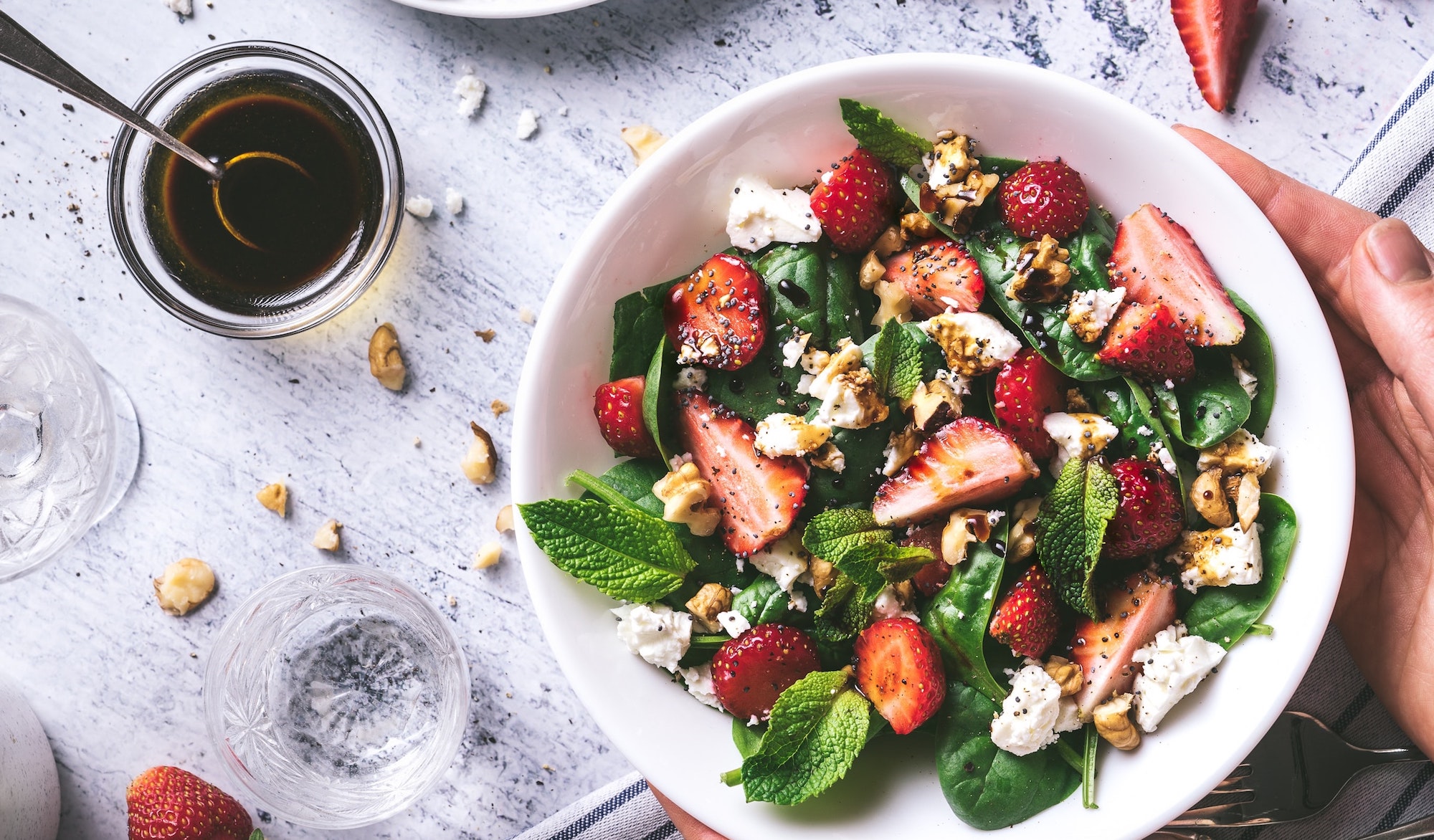
02 Sep 12 Excellent Foods to Help Reduce Inflammation
Sugar, chronic stress, and environmental toxins all contribute to inflammation—your immune system’s response to irritants in and outside of your body. Your internal systems use inflammation to protect you, but when the relationship gets thrown off balance, it can affect your overall health. That’s why dietitians recommend one anti-inflammatory food list to their clients again and again. It is becoming increasingly clear that chronic inflammation is the root cause of many serious illnesses—including heart disease, many cancers, and Alzheimer’s disease.
-
- Vegetables and fruits: Reach for fruits and veggies that come in a rainbow variety. Among other vitamins and minerals, fruits are rich in flavonoids and carotenoids that have anti-inflammatory effects.
-
- Beans and legumes, whole grains, and pasta: Experts recommend 2 to 3 servings of beans per day of the Anasazi, adzuki, and black variety. Beans are rich in folic acid, magnesium, potassium, and soluble fiber. They are a low-glycemic-load food. Eat them well-cooked either whole or pureed into spreads like hummus.
-
- Healthy fats: Five to seven servings of healthy fats a day fit into a healthy diet. Walnuts, extra-virgin olive oil, and avocado are just a few key sources. Healthy fats are those rich in either monounsaturated or omega-3 fats. Extra-virgin olive oil is rich in polyphenols with antioxidant activity.
-
- Fish and shellfish: Seafood like wild Alaskan salmon, herring, sardines, and black cod all contain anti-inflammatory omega-3s. Two to six servings a week are just what the doctor ordered.
-
- Whole-soy foods: Soy foods contain isoflavones that have antioxidant activity and are protective against cancer. Choose whole-soy foods over fractionated foods like isolated soy-protein powders and imitation meats made with soy isolate. Try one to two servings a day of tofu, tempeh, edamame, soy nuts, soy milk.
-
- Cooked Asian Mushrooms: You may have never heard of these, but they are awesome! In fact, you can eat them in unlimited quantities. These mushrooms contain compounds that enhance immune function. Never eat mushrooms raw, and minimize consumption of common commercial button mushrooms (including cremini and Portobello).
-
- Other sources of animal protein (eggs, yogurt, lean meats, etc): Limit the consumption of these foods to once or twice a week. If you eat chicken, choose organic, cage-free chicken and remove the skin and associated fat. Use organic, high-quality dairy products moderately, primarily yogurt and natural cheeses such as Emmental (Swiss), Jarlsberg, and true Parmesan. If you eat eggs, choose omega-3-enriched eggs (from hens that are fed a flax-meal-enriched diet) or organic eggs from free-range chickens.
-
- Herbs and spices: Garlic! Ginger! Turmeric! Cinnamon! We love them all.
-
- Tea: Tea is rich in catechins, antioxidant compounds that reduce inflammation. Purchase high-quality tea and learn how to brew it correctly for maximum taste and health benefits.
-
- Supplements: You should choose supplements based on the gaps in your diet. Talk to your physician to decide which ones are right for your eating style.
-
- Red wine: Red wine has beneficial antioxidant activity. Keep your red wine servings to 2 glasses a week.
-
- Plain dark chocolate: Dark chocolate provides polyphenols with antioxidant activity. Choose dark chocolate with at least 70 percent pure cacao and have an ounce a few times a week. Fruit sorbet is a better option than other frozen desserts. Dried fruit, eaten sparingly, can also be an anti-inflammatory dessert.
Over to you: Which food do you feel helps you fight inflammation? Which foods make you feel worse? Send us your thoughts to [email protected].
